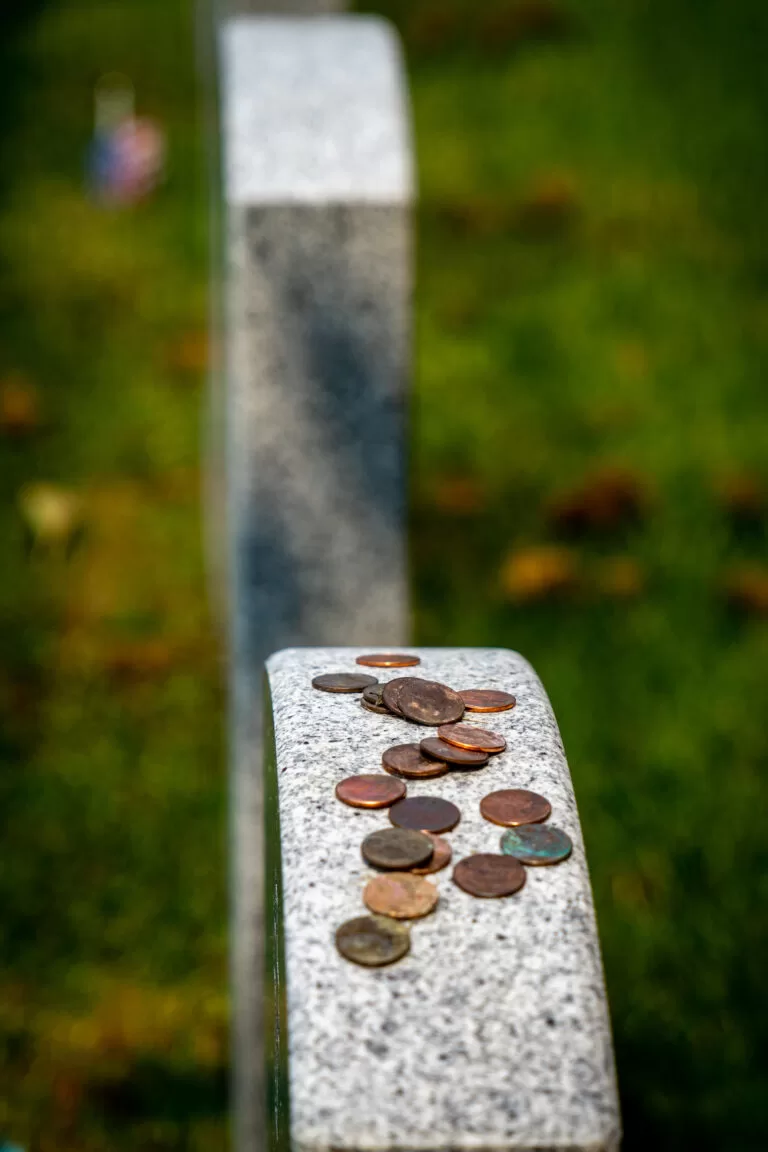When it comes to remembering departed loved ones, people have diverse ways of honoring them. One common tradition involves placing coins on gravestones, a practice witnessed in cemeteries worldwide. Although its origins were once thought to date back to the Roman Empire, recent research dispels that notion.
The custom, associated with the military, can be traced back to the Vietnam War. It served as a practical means of communication during a politically divisive time. The American Legion Website notes that leaving a coin on a grave conveyed a visit without engaging in potentially uncomfortable political discussions with the soldier’s family.

Coins on gravestones carry different meanings. A penny indicates a visit, a nickel signifies someone who served in boot camp with the deceased, and a dime represents time served in the military together. Quarters indicate the visitor’s presence during the time of the loved one’s death. Beyond the military context, veterans may leave coins to honor fallen comrades, occasionally symbolizing a gesture like buying them a beer. Understanding these symbolic gestures provides insight into the diverse ways people pay tribute to those who have passed away.